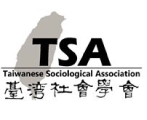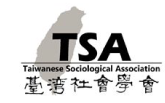場次簡介/ Description:
This panel offers a critical examination of dis/abilities by focusing on diversity, intersectionality, and inclusion. We seek to challenge conventional perceptions of dis/abilities by exploring the defining of disability and ability in various contexts including employment, life narratives, identity negotiation and sexuality. We seek to reconsider societal perception of disabilities interact with personal narratives, identity formations, and agency of disabled. In addition, we try invite critical engagement on reconsidering the power of ableism, various forms of oppression and meanings of disabilities and abilities.
This panel delves into dis/abilities with a focus on diversity, intersectionality, and inclusion. By challenging conventional perceptions, we explore dis/abilities' multifaceted nature across contexts like employment, life narratives, identity negotiation, and sexuality. We aim to reevaluate societal perceptions by examining how they interact with personal narratives, identity formation, and agency of disabled individuals. Additionally, we invite critical discussions on the power dynamics of ableism, oppression, and the diverse meanings of dis/abilities and abilities. Through these inquiries, we aim to foster an understanding that embraces the diverse experiences of individuals with dis/abilities, while dismantling prejudiced norms and promoting a more inclusive and equitable society.
Keywords: dis/abilities, diversity, intersectionality, identity, ableism
發表人/ Presenter:Po-Han Lee (Global Health Program, National Taiwan University)
題目/ Title:Disabled Sexualities as Queerness: Ambivalence and Resistance to Ableist Heteronormativity
摘要/ Abstract:
Sexuality is a fundamental aspect of dignity, encompassing intimate relationships and connection to others; it is also recognised as an essential element of different human rights. Therefore, sexual rights include both liberty and wellbeing dimensions. However, persons with disabilities have long been (though not always) neglected by sexual rights-related movements in Taiwan. Women’s rights advocates have paid attention to protecting women/girls with disabilities from sexual violence, while LGBTQ rights activists seek sexual facilitation in the social welfare domain. On the other hand, disability rights organisations have largely omitted sexuality and intimacy matters until recently. Here I consider the complex relationship between sexualities and empowerment and the limits of the ‘discrimination’ discourse. I argue that disabled sexualities are by themselves queer destabilising dominant sexual identity categories, complicating the heteronormative matrix in Taiwan, and revealing able-mind/bodied-ness embedded in the care context. Crip-queers – whose bodies and sexual lives are often suspended in an ambivalent time-space – are thus agentic and combative, constantly challenging the identity-based and autonomy-centred approach to contemporary sexual rights discourse.
發表人/ Presenter:Tsung-Lun Alan Wan (National Yang Ming Chiao Tung University)
題目/Title: Negotiating the Meanings of an (Un)authentic (Dis)abled Self
摘要/Abstract:
In a Goffmanian sense, disabled people make use of a variety of technologies to perform a body that is encouraged by the mainstreamed society in the front region (Goffman 1956). By wearing these technologies, disabled people devote a large amount of time to social clothing “for the benefit of others” (Murray 2005). Taking deaf people for example, most deaf individuals do not take off the hearing aid or the external device of the cochlear implant until they are alone. A disabled body without connection to any technology is usually only present in disabled individuals’ back region. Based on this understanding, we would presume that this “back-staged” disabled body may be construed to be the authentic self for some disabled people that is not usually witnessed by abled people. However, in the context of disability, due to the hegemonic structure of ableism, an authentic disabled self can be negatively evaluated within the symbolic order of body categorization (Bourdieu 1979). When revealing the “real me” may not bring about a positive interaction, disabled individuals may not even construe a disabled self as the authentic self, creating much space of negotiation between authenticity and disability.
This paper is built upon the data collected from interviews with 19 deaf adults in Taiwan, conducted between 2020 and 2021. The data capture moments when the deaf interviewees participated in a linguistic experiment where they needed to read aloud written texts without the assistance of their hearing technologies. Right after the experiment, the interviewees were invited to share their feelings about not only the experiment but also their perception of the self during the experiment. Two broad types of narratives are identified. Some interviewees narratively framed the disabled body without hearing technologies as uncontrollable, emphasizing the disconnection between their present life from such a negatively disabled body to the researcher and alienating the disabled body as an unauthentic self that is unusually seen in the front region. Other interviewees foreground the consistency between the bodies with and without hearing technologies and frame such differences as only located in a purely physiological realm. Only one interviewee highlights the authenticity of his disabled body without hearing technologies, framing the body in a positive way. With the various narratives, this paper aims to picture a complicated relationship between a disabled self and an authentic self, in the context of technology use.


